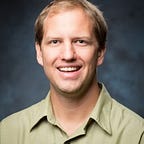Truth and the American Presidency
The following was published on Facebook, Jan. 8, 2021.
As David Hume said, “civilization is built at the base of armed camps.” It’s difficult to relax and write poetry or debate politics if you don’t have security. Hobbes also justifies a powerful sovereign for similar reasons. So if security had been better on Jan. 6 — and if the administration hadn’t apparently undermined that security — we may not be having this conversation. From a larger perspective, there’s a basic problem in America with truth. We have lots of people living in fantasy land, the world of conspiracies and falsehoods. That’s all bad, but when the President encourages it and inspires it, then something like this does seem inevitable. Then, as I step back even further, if we are committed to having the President at the center of American politics (as it’s been since Teddy Roosevelt) AND allow the President to speak freely through various means (radio with FDR, TV, now social media) then it’s absolutely essential that that person be committed to the truth. This just raises the stakes even more for the person we elect — that that person be committed to the truth and truth-telling, as Mitt rightly pointed out. I don’t want to live in a world where so much is riding on that person, but if it is, then we better make sure that person is the right one. Fundamentally, then, it’s up to the American people to be people committed to the truth, and that is at its root a spiritual issue. So many other things are worth mentioning — like the role of white nationalism, the disturbing intersection of faith and white supremacy, the role of media institutions in telling us the truth, the phenomenon of LARPing. But it seems worth mentioning that all of that — although bad — would not be as consequential without the role of the President as communicator-in-chief and how so much rides on that person being a responsible communicator.
